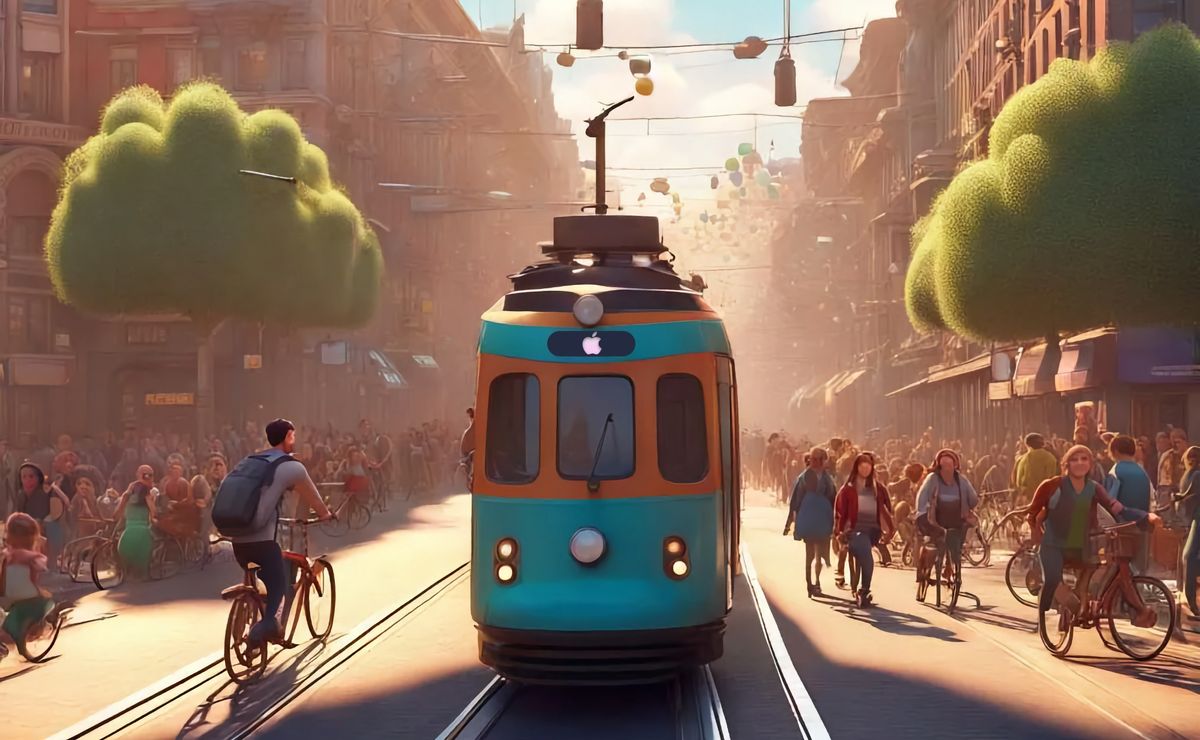Cars Aren’t the Future, Why Doesn’t Apple Know This?
By the time an Apple Car is released, it will look like an outdated version of the future. It's not too late to change course.

Apple is a future-looking company that likes to set the narrative not just for how things are today, but how they should be in the future. At least that's how they like to see themselves.
Often derided for decisions that seem too much too soon, Apple takes joy in setting the tone for the next generation of consumer technology products and defying its critics along the way. The forthcoming Vision Pro may or may not be a success, but it no-one can deny its a bet on the future.
The long-rumoured Apple Car project couldn't be more different. Once seen as the future of electric vehicles, the concept is starting to seem old before it's even released.
The future isn't personal vehicles, no matter how dominant they are or remain. The future is in liveable cities, walkable neighbourhoods, safer bike infrastructure, better metros, trams and buses. It's getting cars out of city centres.
The future is no more freeways. It's long-distance high speed rail connecting the regions. It's car sharing. Multi-modal transit. It's everything that a car is not.
Cars will still play a big role in society, especially in non-urban settings. So many places lack options for how to get from one place to another, that a personal car ownership seems like, and often is, the most logical choice.
But Apple releasing a fancy new electric car in 2030 is like Apple releasing a fancy new floppy disk in 2010. It's not that people won't have a use for it, it's just not the future.
Apple's 2030 Pledge
On the most recent episode of Upgrade, an Apple-focussed technology podcast, Myke Hurley brings up a question from listener Brad:
“With Apple's 2030 environmental commitments, where does this put the [Apple] Car project?”
Back in July 2020, Apple made a big deal of its pledge to be carbon neutral by 2030, issuing a press release stating:
“The company is already carbon neutral today for its global corporate operations, and this new commitment means that by 2030, every Apple device sold will have net zero climate impact.”
To some degree this announcement went unnoticed in 2020.
Partly because companies often make pledges they don't deliver, but mostly because the planet was rightly pre-occupied with a pandemic. Hard to think about 2030 when the next week feels so uncertain.
Doubling-down on the messaging at the most recent event, Apple wanted to let people know they're serious about this. So they made a sketch.
Betting on climate-friendly initiatives makes business sense for Apple. It's a cause most of us can get behind; and it's likely that regulation will continue to increase the price on carbon, making net-zero a necessity to stay profitable.
Even if it's assumed that charging infrastructure by 2030 will be powered by renewable energy sources (and that's a big IF in many countries), there's a lot more to the environmental story.
Often overlooked in discussions of electric cars is the considerable pollution caused by tyre and brake particles. This is especially the case for heavy vehicles, which electric cars often are due to the size and weight of the batteries on board.
Cars Make Everything Worse
Cars, by their nature, are selfish. Being around cars makes an everything worse for everyone, except the person in the car. Cars cause congestion in cities. They pollute the air, even when run from clean electricity.
Cars require considerable public funds for road maintenance, and car dependance makes it difficult to build walkable neighbourhoods when so much space is required for multi-lane roads and parking.
This isn't a judgement of people who buy and drive cars. I love a road trip as much as the next person. It's just about trying to minimise the negative impacts of cars, and improve the alternatives so people have real choices.
Cars will remain in society for all of our lifetimes. But there is a growing movement to reduce their use and impacts, especially in city centres.
Fewer young people have a driver's license now than they have in decades.
 You will find more infographics at Statista
You will find more infographics at StatistaAs noted by Jason Snell in Upgrade, manufacturing a car and its giant battery in a carbon-neutral way by 2030 would be a massive challenge. Perhaps not even possible.
But telling the world in 2030 that a new personal motor vehicle from Apple is a net-benefit for a future-looking society would be the biggest challenge of all.
Someone at Apple must be thinking by now: maybe we should ditch this Apple Car project.